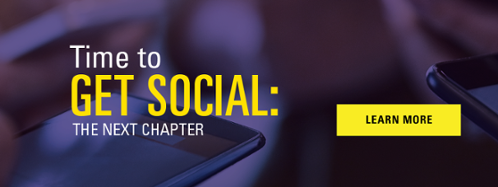
It seems that whenever we talk about modern communications and social media we focus on the young. There’s no doubt that millennials and Generation Z after them (I can’t wait to see what we call the generation after Z) can be classified as “digital natives,” with their natural affinity for technology. And although they may be slower to adapt, baby boomers and other older Americans are just as technology dependent as other demographics.
Today the majority of senior citizens use the internet, finding it ideal for everyday tasks such as reading the newspaper or doing a crossword puzzle, not to mention Skyping with far-flung children and grandchildren or looking at pictures on Facebook.
Social media use continues to increase among older generations—according to the Pew Research Center, some 35% of all adults aged 65 and older said they’re on social media. That’s more than triple the 11% reported in 2010 and light years beyond the 2% from 2005.
But if you are an older internet user who is still a little hesitant about jumping onto a social media platform, you should be aware that not all social media platforms are created equal. Each site has its own distinct culture and customs.
If you’re one of many seniors who moved on from the daily demands of their careers but still want to use knowledge and expertise as a consultant or to advance a favorite philanthropy, social media is a great way to enhance your personal brand. Facebook, as the largest social media platform, is the most obvious choice. If Facebook were its own country, it would be far and away the world’s most populous—with roughly 1.71 billion users.
But if you do decide to use Facebook to build your personal brand, remember that social media is a two-way street and that the goal is to start a dialog. It’s estimated that as many as 87% of Facebook posts go unanswered. If someone reaches out, make sure you respond.
Another way an individual can make a social media splash is through Twitter, as the 2016 political campaigns have so powerfully demonstrated. Twitter can also be a great way to promote any charity events that are important to you.
If you decide to join the twitterati, take it seriously. Frequency is a must since many users only look to see what’s happening in real time. Remember, Twitter is a public forum and tweets can quickly go viral, so make sure your tweets say what you mean and aren’t subject to misinterpretation or, worse, ridicule. And never tweet in anger.
One more thought about using social media—it might also help you live longer. A study of 12 million people born between 1945 and 1989 matched public-health records with data from Facebook profiles and compared these with a control group of individuals who didn’t use Facebook at all. On average, Facebook users were 12% less likely to die in any given year than non-users of the same age and gender. The study also seemed to indicate that having a lot of Facebook friends is important since those with large social networks lived longer.





Let’s Connect
Ready to build, grow, manage and protect your brand? Complete the form below to discuss how we can help.